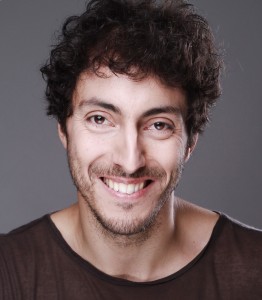 From late March to late August I worked in two Greek camps for refugees as part of a joint Spanish-French Red Cross deployment to support the Hellenic Red Cross. Providing care to people, many of whom were originally middle class, in the developed but wobbling Greece carried with it certain peculiarities.
From late March to late August I worked in two Greek camps for refugees as part of a joint Spanish-French Red Cross deployment to support the Hellenic Red Cross. Providing care to people, many of whom were originally middle class, in the developed but wobbling Greece carried with it certain peculiarities.
I began and finished in Ritsona, a refugee camp located in the midst of a forest area 70 km north from Athens and currently home to around 400 people. The camp is being managed by the Greek Air Force and, initially, when aircrafts performed their exercises some children panicked.
I spent most of my time, however, in Skaramagas, close to Piraeus, where around 3000 asylum seekers live amid the arid environs of an industrial port managed by the Greek Navy.
Setting up health centres in both places involved several challenges, for example: providing care while establishing the health centre’s infrastructure, arranging a referrals system for specialists in the neighbouring public hospitals, organising the patient’s registration and an appointment schedule for non-urgent visits, and managing emergencies while dealing with the long delays of local ambulances—something Greeks experience regularly.
The most common pathologies we saw were those typical of Western primary care: mild infectious diseases, especially among children; accidents or trauma, such as severe burns from children playing around fire or boiling water; and chronic conditions, such as diabetes, hypertension, or osteoarticular diseases in adults. However, some children had several congenital cardiac or neurological diseases, which were some of the most critical cases we assisted with.
Also noteworthy was the high number of cases of nocturnal and diurnal enuresis we attended to in otherwise healthy older toddlers. Although this may relate to emotional disorders, in Ritsona especially it was easier for some mothers whose tents were far from the public latrines to have their children in diapers rather than to regularly accompany their children there.
Among both adults and children, dental health was a big problem. Many of the refugees we saw required a level of dental care that ultimately couldn’t be provided because of budgetary constraints and because, apart from tooth extractions, it’s not covered by public healthcare for Greek citizens either.
However, for me the most challenging aspect was dealing with people’s frustration and anger. Every single day some people left my office annoyed for various reasons. I wouldn’t prescribe antibiotics for what I considered a viral disease; “In Syria they gave us a bag full of medicines.” Appointments with specialists took longer than they anticipated; according to their vastly overblown expectations of a Europe that has now deeply disappointed them, this should have taken just a few days. Regular medications had to be changed due to the unavailability of certain drugs, the drug’s unsuitability for the pathology that we were supposed to be treating, or after its withdrawal because certain prescriptions simply made no sense.
Often, and most importantly, their frustration arose from their situation, but the solutions for this were regrettably far out of my reach. The people I saw told me of their dislike for the daily meals; their feeling that they weren’t safe in a camp (Skaramagas) that the police were afraid to enter—“We flee from a country due to insecurity and we come to Europe where we don’t have security either”; their prevailing feeling that they were generally being treated “like animals.” Above all, they spoke of the uncertainty of being trapped indefinitely in a country they had expected to just travel through before the Greek northern borders were closed last March.
From the perspective of a well paid, middle class humanitarian worker partly hoping to “help those in need,” I carried an unconscious, naive expectation that I would receive a warmer response. I must clarify that most people I attended to were friendly, thankful, or at least polite, and as we got to know each other, we could even tease each other. But hearing of people’s cares and complaints so regularly, together with my inability to respond to some of them, weighed heavily.
I also wondered how I would behave in their circumstances. With many patients, once they were comfortable enough around me and their most basic physical needs were met, they would begin to venture into subjects around their mental health. Some of their stories told in privacy are far more horrible than our imaginations could ever make up. Regretfully, the provision of proper, individual psychological or psychiatric attention remains an urgent healthcare priority that has yet to be properly met.
The EU has failed to provide an adequate response to this humanitarian disaster. After hearing of each sinking ship in the Mediterranean, I imagine the people on those ships—just like the children, people in wheelchairs, or older patients that we attended to. Under the expectation of having to spend further months or even years in camps, some refugees are paying €2500 per head to smugglers to get fake passports and flights to other European countries.
Back home now, I am grateful to them for teaching me patience, some Arabic, and so much about the human condition. I can only wish them a safe and imminent arrival to a place where they can live safely and happily.
Aser García Rada is a paediatrician, freelance journalist, and actor. He is on Twitter @AserGRada
Competing interests: I have read and understood BMJ policy on declaration of interests and declare the following interests: I have worked in Tanzania (2015) and Greece (2016) as a delegate of the Emergency Response Unit (ERU) of the International Federation of Red Cross and Red Crescent Societies being paid by the Spanish Red Cross.
A full disclosure can be found at: http://www.bmj.com/about-bmj/freelance-contributors/aser-garcia-rada